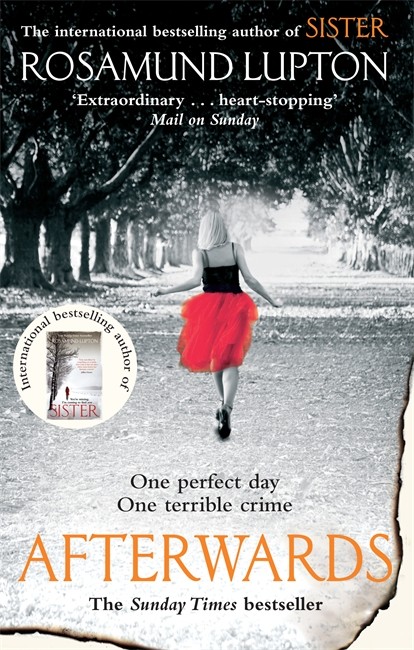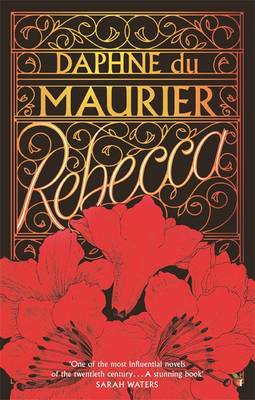Author: Rosamund Lupton
Publisher: Piaktus
Release date: 2011
Pages: 472

* I screamed her name. Over and over. And each time I screamed her name, smoke came into my mouth and throat and lungs until I couldn't scream anymore. The sound of burning, hissing and spitting ; a giant serpent of fire coiling through the building. Above me something collapsed. I heard and felt the thud. And then a roar of rage as the fire discovered fresh oxygen. The fire was above me. Jenny was above me.*
_________________________________
_________________________________
There is a fire and they are in there. They are in there.
Black smoke stains a summer blue sky. A school is on fire. And one mother, Gracce, sees the smoke and runs. She knows her teenage daughter Jenny is inside. She runs into the burning building to rescue her.
Afterwards, Gracce must find the identity of the arsonist and protect her children from the person who's still intent on destroying them. Afterwards, she must fight the limits of her physical strength and discover the limitlessness of love.
Black smoke stains a summer blue sky. A school is on fire. And one mother, Gracce, sees the smoke and runs. She knows her teenage daughter Jenny is inside. She runs into the burning building to rescue her.
Afterwards, Gracce must find the identity of the arsonist and protect her children from the person who's still intent on destroying them. Afterwards, she must fight the limits of her physical strength and discover the limitlessness of love.

‘What is there afterwards?’ an existential question Rosamund Lupton has obviously thought about when she chose the title of her new book. Grace is at sports day on a bright and warm summer day. Suddenly, the lovely afternoon turns into a nightmare: the school is on fire, and she knows that her daughter is inside. She runs to rescue her. The police soon find out that it is arson. Who committed that terrible crime? The culprit must be arrested as soon as possible, because Grace’s family is in danger.
The book starts with a flashback explaining the moment the fire started. The readers who have read Rosamund Lupton’s first novel will recognise her style straightaway: simple, nearly oral, and as if she were addressing the reader personally. In Sister, Beatrice describes the events to her sister Tess, using alternatively the first and second person narrative. In Afterwards, it is Grace who tells the story to her husband Mike. We can draw the comparison even further: Tess will never read Beatrice’s story because she died, and Mike might not either, because Grace has become a spirit – hence the title… unless…
This point of view is unique and it was quite a risky decision. Having a spirit as the main character is unusual and is definitely not what you would expect in a crime book. When I first understood that, I must admit I was quite disappointed. I do not mind ghosts or spirits – for example I enjoyed the Lovely Bones – but I just felt it did not fit in the story that well. Fortunately, I soon realised that I was wrong and I hope the readers who are not convinced by this supernatural aspect will manage to suspend their disbelief, because the book is actually worth reading. This point of view gives the author many opportunities and, in my opinion, it adds to the depth of the story. It would be alright to follow the investigation through Mike’s, Sarah’s or the police’s eyes, but it is even better to have Grace and Jenny’s opinions as well, because they have actually experienced the fire. Moreover, we know more about their characters and feelings than if they had just been present in the background, injured at hospital.
I found the beginning rather slow. The contrast between the lovely afternoon at sports day and the ‘afterwards’ – Grace’s and Jenny’s bad injuries, the hospital, the discovery that the fire was started by an arsonist, the constant threat on the family, the stubborn police officers who do not follow the right leads – is very successful. However, it takes a long time until something really significant is discovered and the passages where Grace and Jenny follow the various characters in order to find out the truth are quite repetitive at times. There are also several flashbacks and I must admit I was quite frustrated not to see the investigation move forwards. However, now that I have finished the book, I understand that these sequences were necessary and added to the depth of the story. They help us know more about the character’s past and their feelings and so they are portrayed with many details that are important later in the book.
The twists and turns are amazing and so is the suspense. Rosamund Lupton sends us on a number of leads, but every time we think we have discovered the culprit, another event occurs and changes things completely… and we are mislead until the very last pages, with an amazing coup de théâtre. However, Afterwards is not only about a crime and an investigation. It deals with much more serious themes which are beautifully developed: family love – between brother and sister; between parents and children; between partners – guilt and death for example. We also see how the image we have from someone can be totally biased and inaccurate and how it can be changed when something important happens. The crescendo of the plot is amazing – although I would have preferred a better balance for the pace of the plot between the – slow – beginning and the – quick – end, and the end poignant.
Afterwards is not only a gripping crime with countless twists and turns, but it also encourages reflection on several important themes, making it a rather emotional novel. Be careful, because once you open it, you will surely not be able to put it down until you have finished it.





























Aucun commentaire:
Enregistrer un commentaire